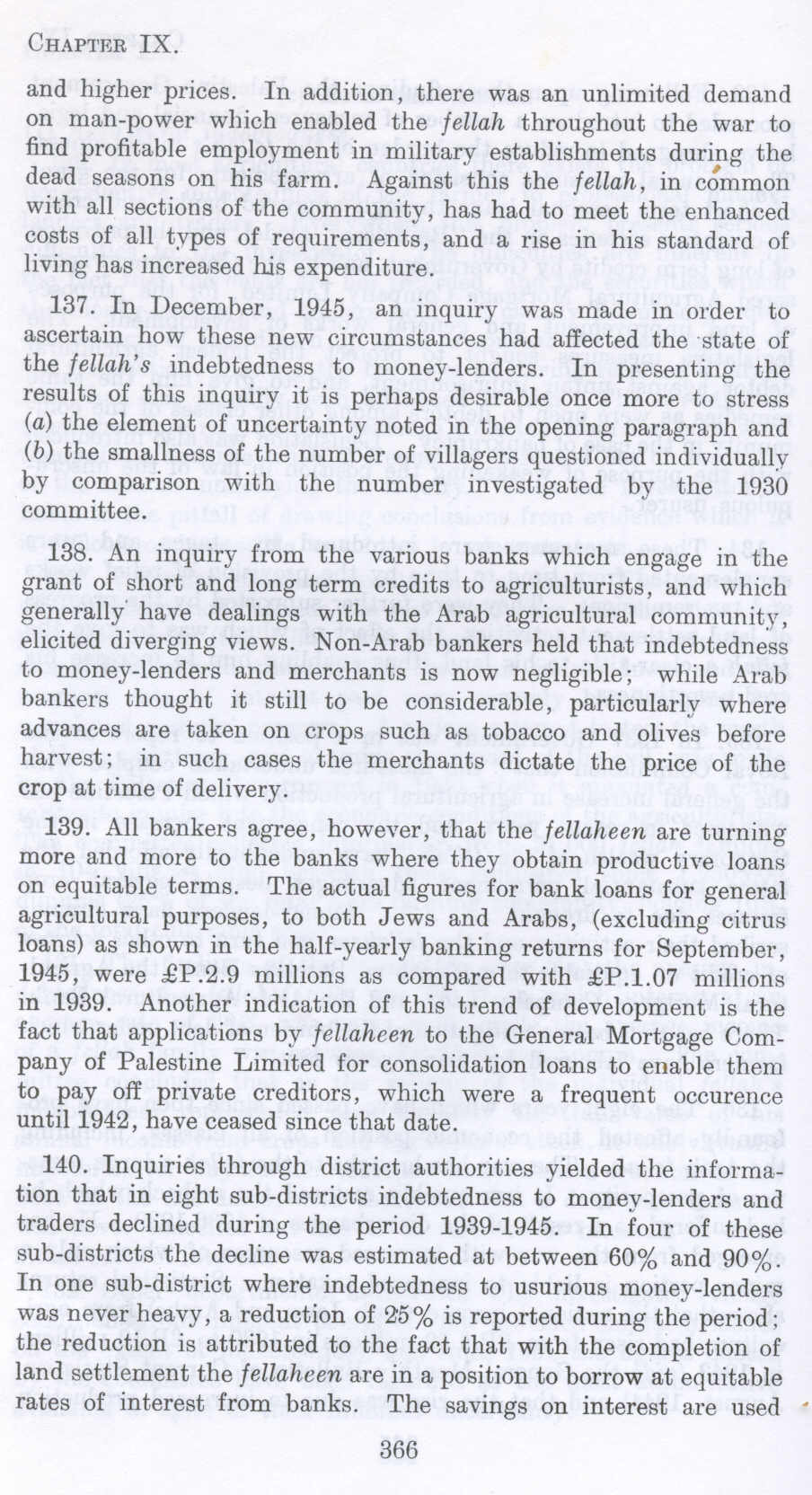| Prev | Next |  |
| Prev | Next |
| PalestineRemembered | About Us | Oral History | العربية | |
| Pictures | Zionist FAQs | Haavara | Maps | |
| Search |
| Camps |
| Districts |
| Acre |
| Baysan |
| Beersheba |
| Bethlehem |
| Gaza |
| Haifa |
| Hebron |
| Jaffa |
| Jericho |
| Jerusalem |
| Jinin |
| Nablus |
| Nazareth |
| Ramallah |
| al-Ramla |
| Safad |
| Tiberias |
| Tulkarm |
| Donate |
| Contact |
| Profile |
| Videos |
British Mandate: A Survey of Palestine: Volume I - Page 366 |
Disclaimer
The above documents, article, interviews, movies, podcasts, or stories reflects solely the research and opinions of its authors. PalestineRemembered.com makes its best effort to validate its contents.


Post Your Comment
*It should be NOTED that your email address won't be shared, and all communications between members will be routed via the website's mail server.
and higher prices. In addition, there was an unlimited demand on man-power which enabled the fellah throughout the war to find profitable employment in military establishments during the dead seasons on his farm. Against this the fellah, in common with all sections of the community, has bad to meet the enhanced costs of all types of requirements, and a rise in bis standard of living has increased his expenditure.
137. In December, 1945, an inquiry was made in order to ascertain bow these new circumstances bad affected the 'state of the fellah' s indebtedness to money-lenders. In presenting the results of this inquiry it is perhaps desirable once more to stress (a) the element of uncertainty noted in the opening paragraph and (b) the smallness of the number of villagers questioned individually by comparison with the number investigated by the 1930 committee.
138. An inquiry from the various banks which engage in the grant of short and long term credits to agriculturists, and which generally" have dealings with the Arab agricultural community, elicited diverging views. Non-Arab bankers held that indebtedness to money-lenders and merchants is now negligible; while Arab bankers thought it still to be considerable, particularly where advances are taken on crops such as tobacco and olives before harvest; in such cases the merchants dictate the price of the crop at time of delivery.
139. All bankers agree, however, that the fellaheen are turning more and more to the banks where they obtain productive loans on equitable terms. The actual figures for bank loans for general agricultural purposes, to both Jews and Arabs, (excluding citrus loans) as shown in the half-yearly banking returns for September, 1945, were £P.2.9 millions as compared with £P.l.07 millions in 1939. Another indication of this trend of development is the fact that applications by fellnheen to the General Mortgage Company of Palestine Limited for consolidation loans to enable them to pay off private creditors, which were a frequent occurrence until 1942, have ceased since that date.
140. Inquiries through district authorities yielded the information that in eight sub-districts indebtedness to money-lenders and traders declined during the period 1939-1945. In four of these sub-districts the decline was estimated at between 60% and 90%. In one sub-district where indebtedness to usurious money-lenders was never heavy, a reduction of 25% is reported during the period; the reduction is attributed to the fact that with the completion of land settlement the fellaheen are in a position to borrow at equitable rates of interest from banks. The savings on interest are used
Page 366